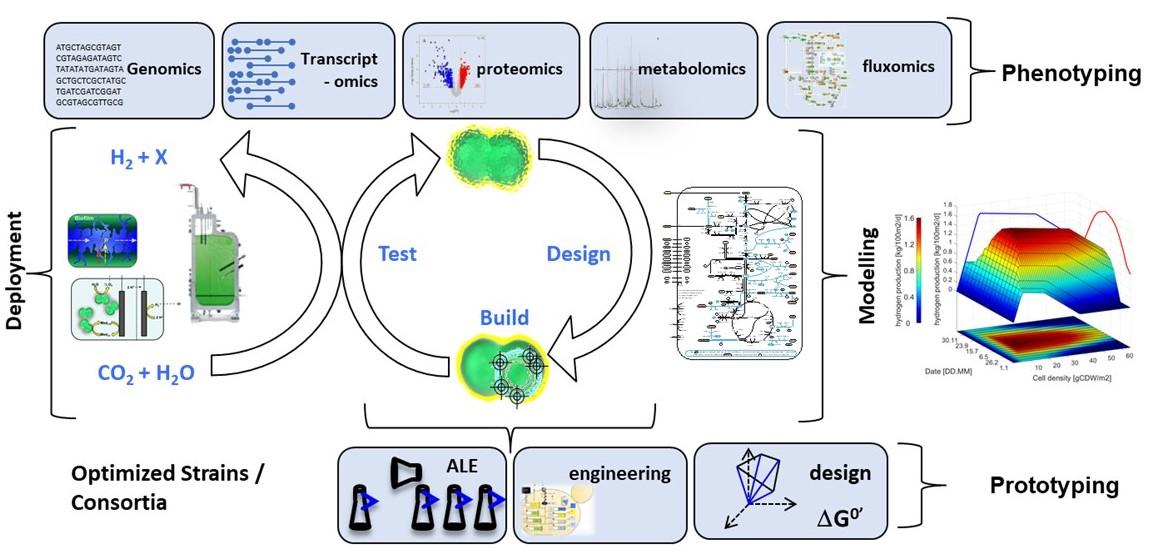Technology definition
(Systems Biotechnology or Biosystems Technology)

Systems biotechnology belongs to systems biology and systems biomedicine (systems biomedicine or biosystems medicine), The technical science applied in systems bioengineering can also be referred to as biotechnology based on systems biology. Biotechnology was born in the 1960s, which was also translated as "bioengineering". It originally referred to industrial microbial fermentation technology. After the 1970s, the development of genetic recombination technology formed fermentation engineering, cell engineering, enzyme engineering and genetic engineering. Etc.", systems biotechnology is also translated into systems bioengineering; however, bio-engineering should more accurately belong to the engineering discipline and involve more engineering manufacturing, design and construction, etc., systems biotechnology It builds a bridge between systems bioscience and bio-engineering.
At the beginning of 1999, the Chinese Academy of Sciences Zeng Bangzhe established the genbrain biosystem network in Germany, and defined the experimental, computational, and engineering methods based on biological system theory. Biological system analysis and artificial biological system research, as well as the online publication of the structural theory of biological self-organizing system-pan-evolution theory, based on the concept of "negative entropy" as "information" and interpretation of information as a measure of self-organization, expounding that biological is A self-organized information control system for inheritance and development from molecules, cells, organs, and individuals. The International Symposium on Biochemical Systems Theory and Computer Models held in the United States in 1989 discussed the research methods of computational systems biology. In 1974, Polish geneticist Waclaw Szybalski called gene recombination technology a concept of synthetic biology. In 1978, the Nobel Prize in Medicine was awarded to Daniel Nathans and Abel for discovering DNA restriction enzymes. When (Werner Arber) and Smith (Hamilton Smith), Sgibalski wrote in the journal Genes: Restriction enzymes will lead us into a new era of synthetic biology. In 1980, Hobom B. called gene recombination technology synthetic biology. With the development of molecular systems biology and artificial DNA synthesis technology, E. Kool re-proposed it in 2000, and then D. Endy et al. discussed synthetic biology as based on systems biology. Genetic engineering technology. In the mid-to-late 20th century, with the development of chemical biology, computational biology, and synthetic biology, high-throughput omics technology and biochips, computer software, mathematical modeling, and genetic synthesis, etc., constituted the system of biotechnology. Foundation.
Technical content
System biotechnology, experimental, computational and engineering technology based on the method of biosystem theory, mainly including: 1), omics (omics) system biotechnology, involving high Throughput biochip technology, nanobiotechnology, genomics, proteomics, metabolomics and other biotechnology; 2), computing system biotechnology, involving bioinformatics, biological system mathematical models, biotechnology software packages, cell signal transduction and genes Regulatory network models, etc.; 3), synthesis, genetically modified system biotechnology, involving the synthesis of genes, whole genes, genomes and engineering design technology and construction (construction), genetically modified biotechnology, and artificial base DNA synthesis, etc.
The core content of system biotechnology is based on the principles of system science, using molecular biotechnology and computational biotechnology, including microfluidic technology Lab. on Chip and omics biology to develop clinical molecular diagnostics , Drug screening and pharmaceutical technology, especially synthetic biology for the artificial design and construction of cell signal transduction, gene regulation and metabolic network, so as to develop algae bioenergy technology, metabolic engineering bioreactor, biological cell refining factory and biocomputer technology, etc. .
